
AS A non-scientist companion parrot owner, I’m keen on increasing knowledge of wild birds both for its intrinsic interest and because the more I can understand of wild bird behaviour the more similarities I observe in my own small flock.
It’s a fascinating field which is expanding all the time: research into the lifestyles of the 350 or so species of parrot that remain. And since conservation affects everyone, the more I understand about what is happening in the field the easier it is to contribute. Even if the cash amounts are small from a sole individual, the more we are encouraged, the more hope there is for maintaining what we have and in some cases restoring what was almost extinct: heartening stories like choughs breeding in Cornwall, or the kakapo increasing its pitiful numbers in New Zealand.
Wild parrot behaviour Parrot species share certain traits, but the variety between species is wider than many realise. One helpful avenue to explore is to find out how different species behave; what they eat or how they mate and raise their young. So, does your bird come from a species that likes to fossick in the ground like a kakariki (red-crowned parakeet) or a cockatiel, or is it a canopy-feeding Amazon which will rarely descend to the ground?
In my continual quest for the best nutrition, I’ve decided I won’t find the perfect answer in my lifetime. I’ve learned that all parrots are primarily herbivorous, while different species have adapted to their particular environment, such as lories and their like eating pollen and nectar, whereas other species eat seeds, and yet others feed mainly on fruit pulp, and a few subsist on leaves. There is also a fifth category – call them omnivorous – which includes non-specialist feeders. These eat some of the foodstuffs of previous groups and will also consume significant amounts of animal protein.
Diese Geschichte stammt aus der November 20, 2019-Ausgabe von Cage & Aviary Birds.
Starten Sie Ihre 7-tägige kostenlose Testversion von Magzter GOLD, um auf Tausende kuratierte Premium-Storys sowie über 8.000 Zeitschriften und Zeitungen zuzugreifen.
Bereits Abonnent ? Anmelden
Diese Geschichte stammt aus der November 20, 2019-Ausgabe von Cage & Aviary Birds.
Starten Sie Ihre 7-tägige kostenlose Testversion von Magzter GOLD, um auf Tausende kuratierte Premium-Storys sowie über 8.000 Zeitschriften und Zeitungen zuzugreifen.
Bereits Abonnent? Anmelden
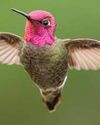
The World's Best-Known Hummingbird?
Intensively studied, the gem-like Anna’s hummingbird is a welcome visitor to the gardens of America’s most populous state: California. Bill Naylor investigates its life history
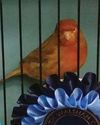
The charm of the English Cinnamon
Despite its long and complicated history, the true Cinnamon canary is still with us – in the hands of a tiny group of breeders. DONALD SKINNER-REID reckons it deserves wider appreciation
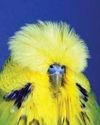
Spangles: a personal overview
FRED WRIGHT relates a budgie story of over-exploitation, consequent problems and abundant potential for the future

New converts to old breeds
Old and rare canaries have a reputation for adding fresh interest and challenge to the hobby. PETE HOOK and NICK JOY agree, and explain the birds’ charm to Dave Brown

Themed aviaries are a hit with the public at annual Stafford show
DECORATIVE AVIARY DISPLAYS from a CBS and an online bird keeping advice group were voted in the top three by visitors for the inaugural Stafford Aviary Competition.
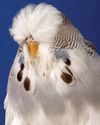
Pieds with potential
More than just a lesser variety, the dominant pied will introduce challenge and change into most studs, reckons CLIVE WAKEMAN. Here he discusses pairings to try and others to avoid
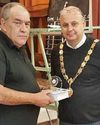
Club News
Welcome to the club and show pages – the bit that’s all about you Results: convention, specialist & rare and Breeder of the Year
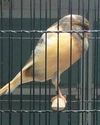
Canaries Month by Month:
With Christmas around the corner, BRIAN KEENAN is well into his winter programme, and reckons he might deserve a nice outcross
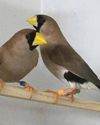
Smart Choice, Docile Nature
Dave Brown welcomes the masked grassfinch to his birdroom and shares advice on this lovely Australian species
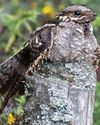
The truth about the ‘flying toad'
Odd local names and weird superstitions can’t hide the beauty and elegance of the nightjar, a species that has made a fascinating subject in a few zoo collections, reveals BILL NAYLOR